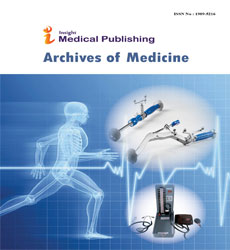Abstract
Plasmatic neurosin as a new potential biomarker in the differential diagnosis of patients with cognitive impairment
The search of biological markers for the early and accurate identification of the diseases leading to dementia is becoming a high priority. Neurosin have been pointed as a promising biomarker for AD since previous studies found its levels in brain tissue, cerebrospinal fluid and blood to be abnormal in AD. We studied the usefulness of measuring plasmatic neurosin in the differential diagnosis of dementia and summarize here our findings.
Measuring plasmatic level of neurosin seems to be useful to assist in distinguishing Alzheimer’s disease (AD) from Vascular Dementia (VD). Additionally finding a high level of neurosin in patients diagnosed with mild cognitive impairment (MCI), or increases in relation to a previous measurement, might predict conversion from MCI to VD, while decreases might predict conversion to AD.
Measuring plasmatic neurosin and other biomarkers early in the course of cognitive impairment could open the door to more-effective interventions. Further tests are needed before this approach can be used in clinical practice.
Author(s): Manuel Menéndez González
Abstract | Full-Text | PDF
Share this

Archives of Medicine peer review process verified at publons
Abstracted/Indexed in
- Google Scholar
- Genamics JournalSeek
- China National Knowledge Infrastructure (CNKI)
- Directory of Research Journal Indexing (DRJI)
- WorldCat
- Proquest Summons
- Publons
- Geneva Foundation for Medical Education and Research
- Secret Search Engine Labs
- Euro Pub
Open Access Journals
- Aquaculture & Veterinary Science
- Chemistry & Chemical Sciences
- Clinical Sciences
- Engineering
- General Science
- Genetics & Molecular Biology
- Health Care & Nursing
- Immunology & Microbiology
- Materials Science
- Mathematics & Physics
- Medical Sciences
- Neurology & Psychiatry
- Oncology & Cancer Science
- Pharmaceutical Sciences


